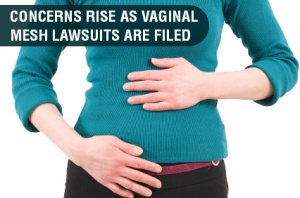Vaginal mesh devices, also known as bladder slings, have been linked to several complications in the past several years. According to most of such cases, the implants may potentially cause severe complications that could result to serious injuries that may corrective surgeries. These have led thousands of injured women to take legal actions such as filing of transvaginal mesh lawsuits against mesh manufacturers.
The above-mentioned mesh devices have been around since the 1990s, during which such implants were supposedly very much on demand. Medical experts say that they were initially used for the treatment of hernias, and later utilized in vaginal procedures for pelvic organ prolapse (POP) and stress urinary incontinence (SUI). Due to high demand, numerous medical companies manufactured their own versions of the device, which are mostly designed to treat POP and SUI only. Among the large companies that entered the vaginal mesh market are American Medical Systems, Inc., Boston Scientific, Inc., Ethicon, Inc., Cook Medical, Inc., C.R. Bard, Inc., and Mentor Corp. Remarkably, reports indicate that most of these companies are now facing lawsuits over complications associated with their mesh implants.
Reports of transvaginal mesh complications have started circulating in the public even before the implants themselves became popular, based on various media sources. Such reported complications include mesh erosion, infection, recurrent POP, and organ perforation. Initially, the U.S. Food and Drug Administration (FDA) stated that the occurrence rate of these complications is low. Later, however, the agency admitted in a warning notice that transvaginal mesh complications are not so rare after all. Some of the patients who were allegedly injured by the mesh implants state that they had to undergo a number of corrective procedures in order just to alleviate their conditions.
Numerous lawsuits involving transvaginal mesh implants were reportedly filed over the years as an increasing number of patients claim to have suffered from mesh injuries. Overall, the number of cases has reached more than 20,000. In fact, six transvaginal mesh multidistrict litigations have already been established by the Judicial Panel on Multidistrict Litigation. They are now proceeding in the U.S. District Court for the Southern District of West Virginia.
References:
fda.gov/medicaldevices/safety/alertsandnotices/publichealthnotifications/ucm061976.htm
prweb.com/releases/transvaginal-mesh-lawsuit/boston-scientific/prweb11521869.htm



